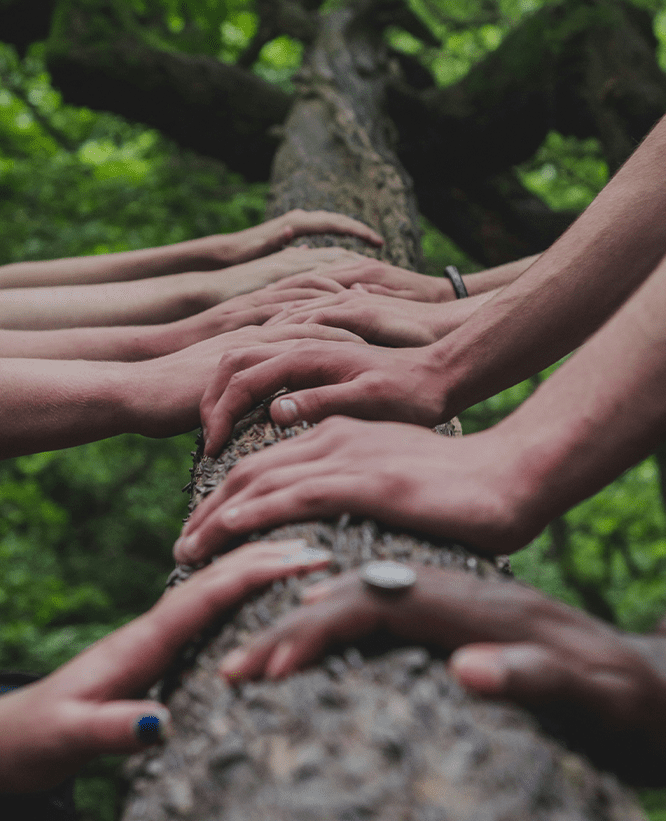What is Domestic, Family & Sexual Violence (DFSV)?
DFSV affects people of all ages and backgrounds, but predominantly impacts women and children.
DFSV Explained
The Issue
Domestic, family and sexual violence is a significant national health and welfare issue in Australia. It affects people of all ages and backgrounds, but predominantly impacts women and children.
On an international level, the United Nations Declaration on the Elimination of Violence against Women provides the following definition: ‘The term violence against women means any act of gender-based violence that results in, or is likely to result in, physical, sexual or psychological harm or suffering to women, including threats of such acts, coercion or arbitrary deprivation of liberty, whether occurring in public or private life.’

Prevalence of various forms of violence against women in Australia – source: Australian Bureau of statistics 2017.
Domestic Violence
Domestic violence is a form of family violence that takes place between current, or former intimate partners, also known as intimate partner violence.
Family Violence
Family violence refers to abusive behaviour that is used to control someone within family relationships such as, between parents and children, siblings, intimate partners or kinship relationships.
Sexual Violence
Sexual violence encompasses various forms like assault, threat, harassment, abuse, and image-based abuse. The Australian ABS PSS defines it as assault and threat, with harassment and childhood abuse reported separately.
Drivers of DFSV
Gender Based Violence
Violence against women stems from gender inequality and other forms of discrimination like racism, ableism, and colonialism. Gender inequality leads to unequal social status and power between men and women, contributing to violence. Various factors at societal levels, such as economic disparities and family roles, influence violence against women.
Violence against women is influenced by specific gender-related factors. Research highlights four key elements that consistently predict or “drive” violence against women, which include:
Driver 1
Condoning of violence against women
When societies, institutions, or communities tolerate violence against women, instances of such violence increase. Men who endorse these beliefs are more prone to committing violence against women. The condoning of violence manifests through practices that rationalise, excuse, trivialise, or shift blame from the perpetrator to the victim.
Driver 2
Men’s control of decision-making and limits to women’s independence in public and private life
Men controlling decision-making, limiting women’s autonomy, and holding rigid views on female behaviour contribute to violence in relationships. Women’s independence constraints extend to the public sphere, where men control power and resources, leading to lower social value for women.
Driver 3
Rigid gender stereotyping and dominant forms of masculinity
Promoting rigid gender stereotypes reinforces gender inequality and contributes to violence against women, with dominant views of masculinity playing a direct role in men’s violence against women.
Driver 4
Male peer relations and cultures of masculinity that emphasise aggression, dominance and control
Male peer relationships, whether personal or professional, that emphasise attitudes, behaviours, or norms linked to masculinity such as aggression, dominance, control, or hypersexuality, are associated to men’s violence against women.
How we can address the gendered drivers
Violence against women is not inevitable, it is preventable. To stop this violence from happening in the first place, we need to address the underlying drivers of this violence, which include
1. Challenge condoning of violence against women
2. Promote women’s independence and decision-making in public life and relationships
3. Build new social norms that foster personal identities not constrained by rigid gender stereotypes
4. Support men and boys to develop healthy masculinities and positive, supportive male peer relationships
Reference: The National Plan to End Violence Against Women and Children 2022-2032
Types of DFSV
Coercive Control
Coercive control is an ongoing pattern of behaviour in which someone tries to control, isolate and intimidate you and is often used by a perpetrator to establish and maintain control in a relationship. Coercive control can include:
- Isolating you from friends and family
- Gaslighting – which is defined as manipulating someone into questioning their own perception as reality.
- Restricting and managing access to finances
- Controlling what you wear and where you go
- Checking your personal devices and social media
- Threatening to harm your children or pets
To find out more about coercive control please visit See The Signs website here.
Psychological Violence
Psychological abuse can include verbal, non-verbal or physical acts intended to dominate and intimidate you.
Examples of psychological abuse can include:
- Name calling, ridiculing, put downs and humiliation
- Perpetrator threatening to commit suicide if you leave the relationship
- Threatening to damage or destroy personal property
- Intimidating behaviour including outbursts, staring, silence and ignoring
Emotional abuse can be more damaging to self-esteem and coping abilities than physical violence. Threats of violence can be as controlling as actual violence, instilling fear and preventing you from leaving abusive relationships.
To find out more information please contact 1800RESPECT on 1800 737 732 or visit the 1800RESPECT website here.
Financial Abuse
Financial or economic abuse is when a person uses financial means to gain power and control over you.
This can include:
- Controlling your access to finances
- Sabotaging your ability to work or hold down a job
- Taking out loans or credit cards in your name
- Hiding assets
- Refusing to pay or evading child support
Having little to no access to financial independence can make leaving an abusive relationship much more difficult. The real possibility of homelessness upon leaving your relationship can mean you may stay in that abusive relationship.
To find out more about financial independence please visit the Zahra website The Next Steps | The Zahra Foundation
Sexual Violence
Sexual violence is an act of power and control which occurs when you are forced, coerced, or manipulated into any sexual activity. This can include:
- Unwanted touching, intimidation or rape
- strangulation during intercourse
- forced or coerced watching or engaging in pornography.
Sexual violence can affect anyone throughout their lives and can be perpetrated by strangers or people known to the victim-survivor.
In an emergency call 000 or
Yarrow Place Rape and Sexual Assault service 1800 817 421
Physical
Physical violence is when a person uses force to cause fear or harm. Examples of physical violence can involve
- Hitting, punching, kicking, scratching, biting, or hair pulling
- Choking, strangulation or shaking
- Damaging property or other objects
- Negligent driving
- Harming pets
Physical violence can have immediate and long-term impacts. Long term psychological effects can present as Post Traumatic Stress Disorder, depression, anxiety, suicidal thoughts and substance abuse. Long term physical health can be severely impacted by physical violence and can include brain injuries, migraines and chronic pain.
For 24-hour crisis support call the Domestic Violence crisis line on 1800 800 098 or 000
Tech-Facilitated Abuse
Technology-facilitated abuse or ‘tech-based abuse’ is used to cause harm or intimidate you
Technology-facilitated abuse can include:
- Using GPS systems or tracking software to locate you
- sharing or threatening to share intimate images of you online referred to as ‘revenge porn’
- controlling your online communication
- restricting or controlling your access to devices and online accounts
- financially abusing you using technology.
The most important thing to know is that regardless of your experience of tech-based domestic, family and sexual violence, it is not OK, and help is available.
Please visit the eSafety website here for more information.
Spiritual Abuse
Spiritual or cultural abuse is to exercise dominance or control over a person who is especially vulnerable due to their spirituality or cultural identity. Spiritual abuse may include the following:
- Preventing you from practicing your religion
- Forcing you to follow spiritual or cultural beliefs which don’t align with your own
- Isolating you from your spiritual or cultural community
To find out more information please contact 1800RESPECT on 1800 737 732 or visit the 1800RESPECT website here.
Stalking or Harassment
Stalking or harassment aims to intimidate and violate your privacy, independence, and safety. These behaviors can occur within a relationship or start and intensify after a breakup. Examples of stalking or harassment include:
- Turning up unexpectedly at inappropriate places
- Excessively calling, texting and emailing
- Tracking you using technology
- Following you to or from your home, workplace, or social activities
- Leaving notes or unwanted gifts at your home or workplace
If you or someone you know is experiencing stalking or harassment, please refer to the links below for assistance.
Supporting Others
Someone I know needs help
At The Yellow Gate, we can engage in discussions with family members, friends, colleagues and even neighbours regarding how to assist someone facing domestic or family violence. It can be extremely challenging to realise that someone you care about is suffering, leading to uncertainty about how to address the situation. Just remember It is OK to say something if someone you know is experiencing domestic or family violence.
How you can help someone:
- In case of an emergency or if someone is in immediate danger, call 000 right away.
- Believe them and take their fears seriously
- Listen without interrupting or passing judgment.
- Never blame the victim of violence for what they have endured. Violence is never acceptable.
- Avoid making excuses for the person responsible for the harm.
- Recognise that they may not be prepared or safe to leave. Avoid pressuring them into actions you believe are best.
- Keep in mind that domestic and family violence extends beyond physical harm see types of DFSV
- Offer practical assistance such as transportation, scheduling appointments, childcare, or providing a safe place to seek refuge.
You or the person you are supporting can call The Yellow Gate on 1300 564 164 or fill out our Contact Form Here and we will be in touch within 48 hours.






